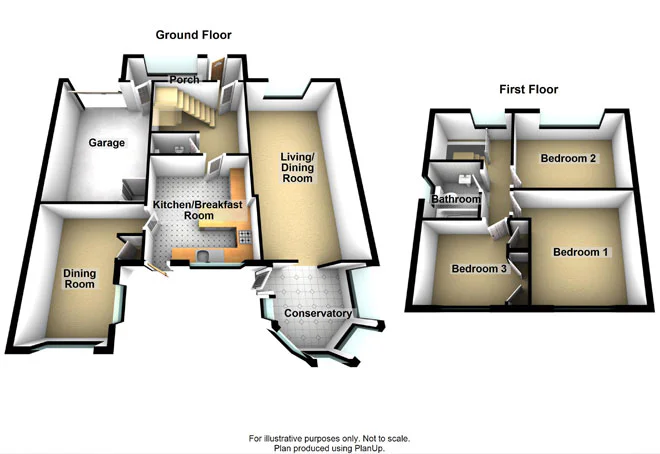Exceeding Expectations
Since 2002, local homeowners have trusted us for our expertise and local knowledge. We’re dedicated to building strong, lasting relationships based on trust and expert guidance. From the moment you decide to sell, we’re here to make the process smooth and stress-free.
Your home will be appraised by one of our partners who have a combined experience of over 70 years in residential property and will assess the property’s features and saleability accurately. Over the years we’ve trodden most of the streets and valued all types of property. Whatever is happening in the market you can trust us to have our finger on the pulse and use our vast experience to value your home properly in ever changing market conditions.
Our Partners have 70 + years of local knowledge
With over 70 years of combined local experience, our partners bring unmatched insight into the property market. Widely recognised as one of the area’s leading estate agents, we’ve built a strong reputation for our expertise, deep-rooted local knowledge, and proactive approach. Since opening our doors in 2002, homeowners have continued to trust us – many returning time and again – for a service that is both personal and professional.
We understand that communication matters
At Hyman Hill, we understand that selling your home is one of the most significant decisions you’ll ever make – and you deserve to be kept fully informed throughout the process. One of the most common frustrations we hear from clients who’ve used other agents is a lack of communication, particularly around feedback and progress updates.
That’s why we make communication our top priority.
After every viewing, we provide constructive feedback the following business day – by phone or email, whichever you prefer. Our honest, timely insights help you make informed decisions and ensure we’re always working in partnership toward your goal.
We also deliver regular market updates, giving us the opportunity to adjust your marketing strategy if needed and keep your property positioned competitively.
Once a buyer has been found, we don’t stop there. We continue to provide regular updates on the progression of your sale, right up to the moment the keys are handed over.
Why use Hyman Hill?
At Hyman Hill, we take a comprehensive and professional approach to marketing your property, ensuring it stands out from the crowd. Each listing benefits from a carefully crafted, high-quality brochure featuring 2D and 3D floorplans, exceptional photography, and stunning aerial imagery -designed to showcase your home at its absolute best. Unlike most agents, we go the extra mile by providing every property with both a ‘Premium’ and ‘Featured’ listing on Rightmove.co.uk, the UK’s most popular property platform. This added visibility helps capture maximum attention from potential buyers. Our experienced team combines these powerful, modern marketing tools with a traditional, customer first approach – giving your property the best chance of selling quickly and at the best possible price.
Featured Properties
There are no featured properties to display.
Selling FAQs
- Contracts are typically signed before the exchange of contracts stage, but signing alone does not make the agreement legally binding.
- The seller’s solicitor will draft the contract and send it to the buyer’s solicitor. Once any amendments are approved and the buyer’s solicitor has all required information, the contract will be sent to the buyer for signing.
- At the point of signing, the contract is not yet legally binding. It only becomes binding when contracts are exchanged.
- The contract is held on file after signing, pending agreement on dates for exchange and completion.
- Either party can still pull out without financial penalty any time after signing but before exchange of contracts.
- Exchange of contracts is when the sale becomes legally binding for both buyer and seller. This typically happens via a recorded phone call between the solicitors.
- The completion date is usually set at exchange, typically 1-4 weeks after exchange.
- Most exchanges happen in the morning, often between 10am and noon.
- Searches are an essential part of the conveyancing process that must be completed before exchange of contracts.
- The main types of searches typically include:
- Local authority searches
- Environmental searches
- Water and drainage searches
- Land Registry searches
- Searches are conducted by the buyer’s solicitor or conveyancer to gather important information about the property and surrounding area.
- Local authority searches provide information on planning permissions, building regulations, nearby road schemes, and other local issues that could affect the property.
- Environmental searches check for potential contamination, flood risks, and other environmental factors.
- Water and drainage searches confirm the property’s connection to mains water and sewerage systems.
- Land Registry searches verify the seller’s ownership of the property.
- Searches can sometimes cause delays in the conveyancing process, especially if local authorities are slow in providing information.
- The results of these searches help the buyer make an informed decision about the property and can reveal potential issues that may affect its value or suitability.
- Searches are typically one of the factors that contribute to the 8-12 week timeframe between an initial offer and exchange of contracts.
- It’s important for buyers to ensure all necessary searches are completed before proceeding to exchange of contracts, as this helps protect their interests and avoid potential problems after purchase.
- You need to have buildings insurance in place from the exchange of contracts date, not just the completion date.
- Exchange of contracts is the point at which the sale becomes legally binding. After this, you cannot pull out without losing your deposit and potentially facing legal action.
- The Standard Conditions of Sale (5th edition), which are incorporated into most residential property contracts, place an obligation on the buyer to insure the property from the point of exchange.
- Even if the seller continues to insure the property, the amount may not be adequate. As the buyer, you are responsible for any damage to the property from the moment of exchange.
- If you’re buying with a mortgage, your lender will typically require you to have buildings insurance in place from exchange of contracts.
- It’s recommended to obtain quotes for buildings insurance well in advance of exchange so you can arrange for it to start immediately on the day of exchange.
- For leasehold properties like flats, the building may already be insured by the landlord or management company. In this case, you should check with your conveyancer about the specific requirements.
- For new-build properties, the developer’s contractor policy may provide cover until the completion date. Check with your solicitor about this.
- Mortgage funds are usually released on the completion date, which is when you officially become the homeowner. This is typically 1-4 weeks after exchange of contracts.
- The lender releases the mortgage money to your solicitor, who then pays the seller’s solicitor on the completion date.
- Some solicitors may request the funds a day or two before the completion date to ensure everything is in place.
- It generally takes between 3-7 days for lenders to release mortgage funds after they are requested.
- Your solicitor will request the funds from the lender once a completion date is set, usually after exchange of contracts.
- The lender may do final checks before releasing the funds, even if they’ve previously confirmed the mortgage.
- For purchases, funds are not typically released until exchange of contracts has occurred and a completion date is set.
- Your solicitor will coordinate with the lender to ensure funds are received in time for the agreed completion date.
- It’s advisable not to make firm moving arrangements until after exchange of contracts, when the completion date is fixed.


